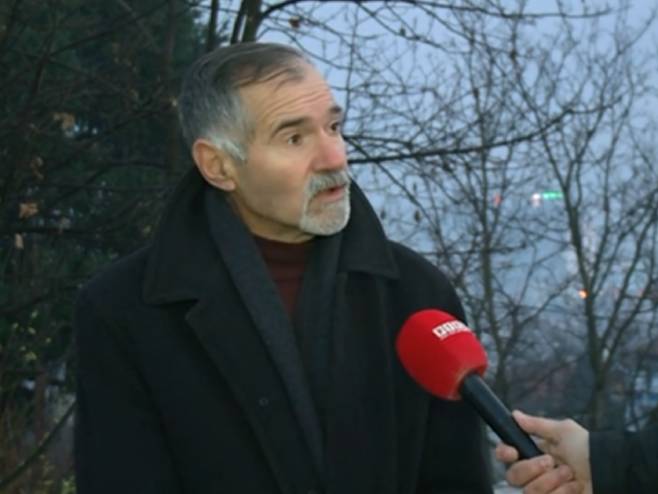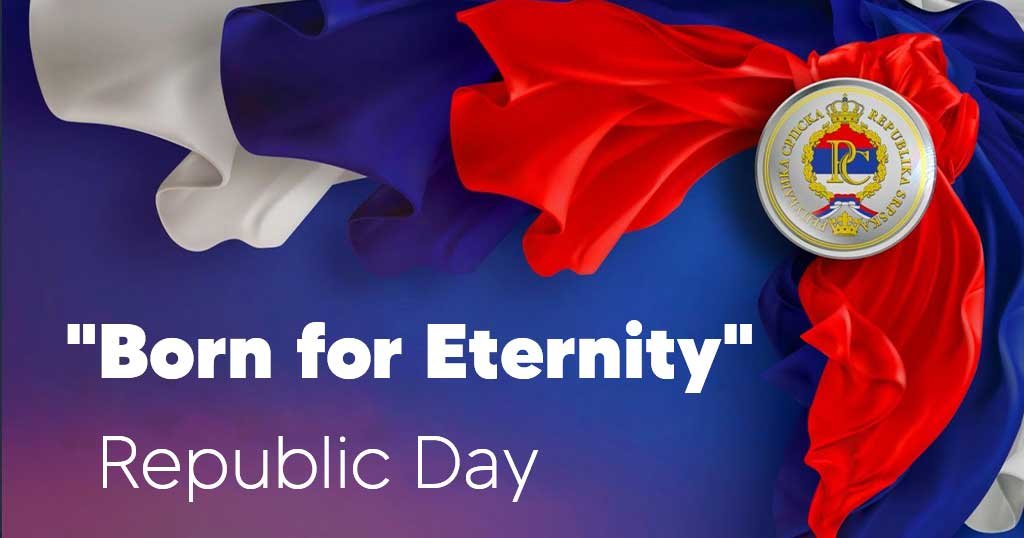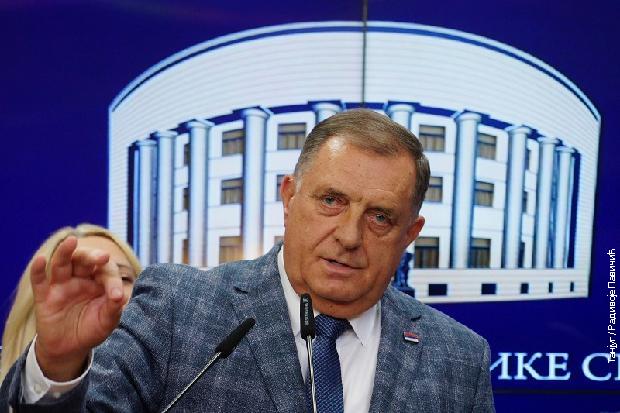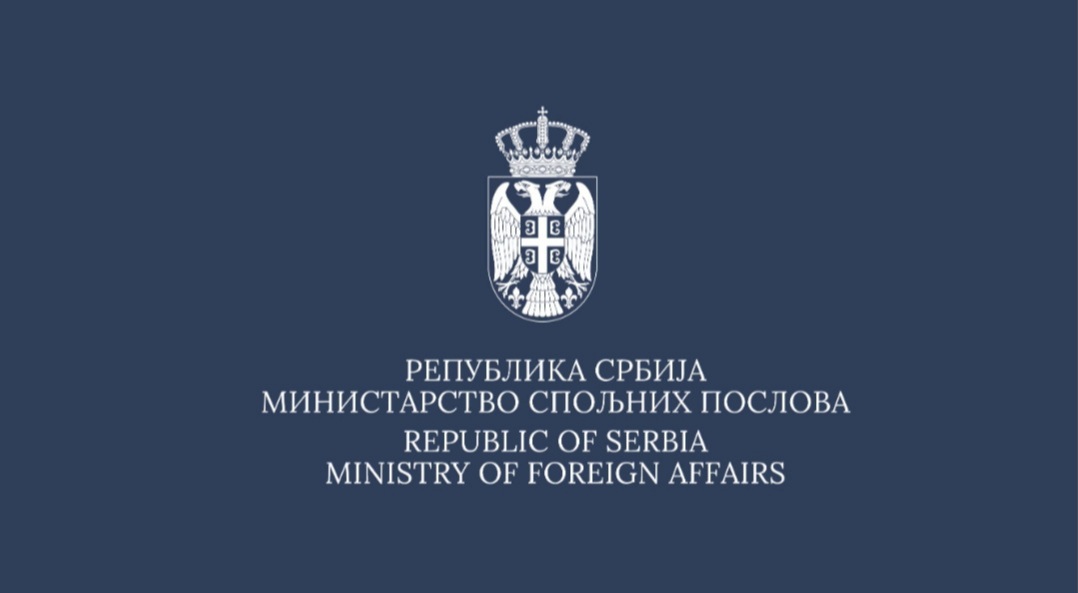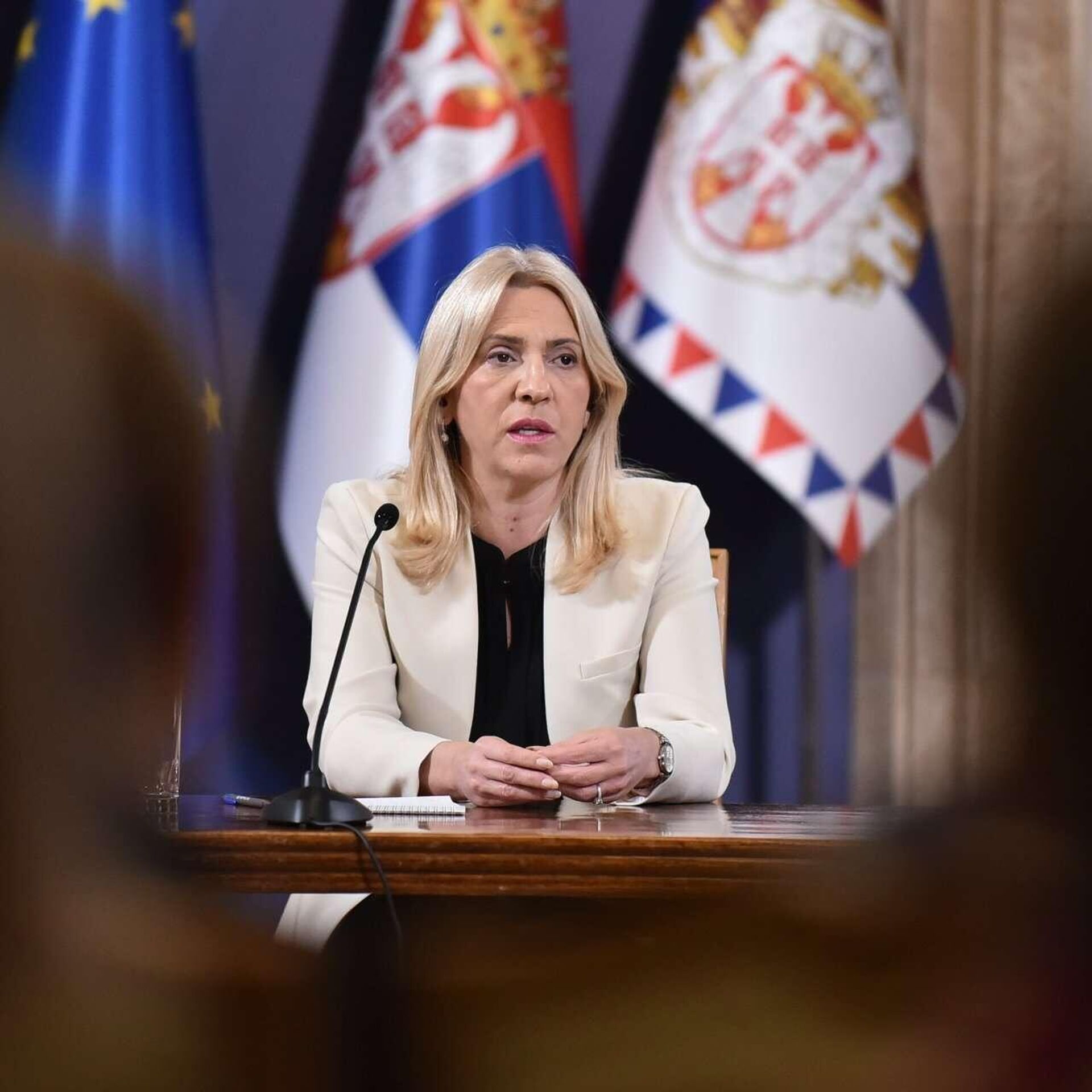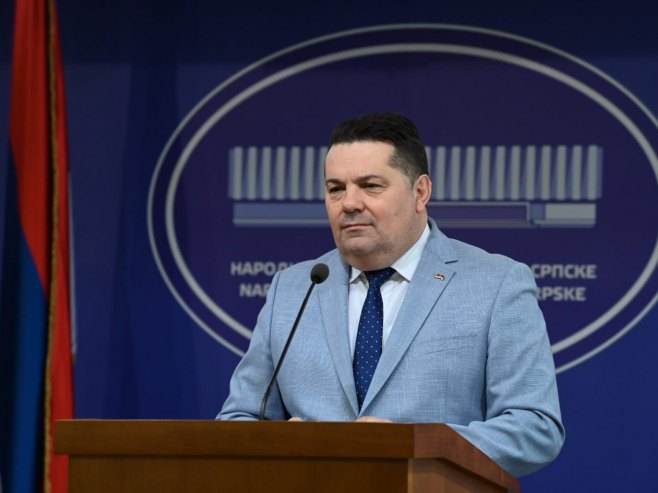The Director of the Center for Socio-Political Research (CDPI) of Republika Srpska, Dušan Pavlović, stated that Republika Srpska is the result of a biblical struggle between David and Goliath—a struggle, sacrifice, and heroism of “a people who were not supposed to exist.”
Pavlović emphasized that January 9 is one of the key elements of the cultural identity of Serbs as a constituent people and of Republika Srpska as the guarantor of their existence.
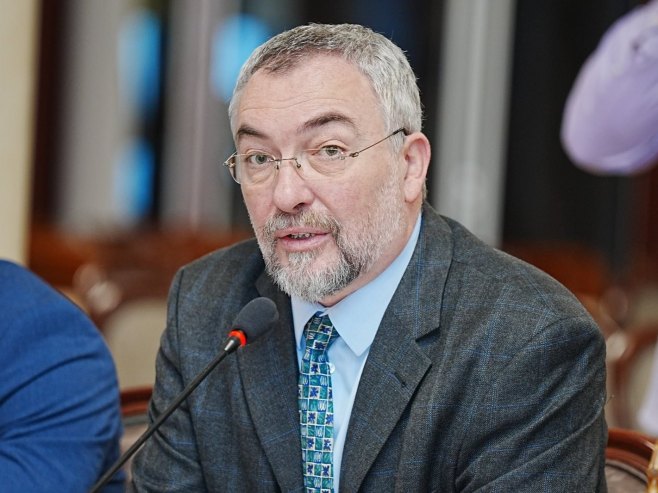
“January 9, and Saint Archdeacon and First Martyr Stephen, the Day and Patron Saint of Republika Srpska, form the foundation of our identity and the bridge that connects our past and our future,” Pavlović wrote in an op-ed for Srna.
A people who were not supposed to exist
Pavlović recalled the notion that Bosnia belongs to those who suffered for it—on the Turkish stake and the Austrian noose—and pointed out that both Yugoslavias erased this historical truth with their supranational and internationalist agendas.
“It was precisely this abandonment of the Serb idea that allowed around two million Serbs, primarily west of the Drina River, to be targeted for complete annihilation in the pro-Nazi Independent State of Croatia (NDH),” Pavlović emphasized.
He noted that support from Germany, Italy, and other international actors led to between 1.1 and 1.3 million Serbs falling victim to genocidal actions, forced expulsions, assimilation, and physical extermination—essentially genocide. The leadership of the second Yugoslavia, Pavlović argued, did everything to prevent the internal and international recognition of this plan—targeting the destruction of about two million Serbs in NDH—as genocide.
“Despite all this, Serbs, unfortunately, once again became the beast of burden for Yugoslav communism and the interests of great powers. With the fall of the Berlin Wall, the second Yugoslavia also collapsed, and Serbs became the main topic on the agenda of the world’s most powerful centers of influence and their regional proxies. The old rider is long dead, but its offspring of various forms and interests still need the same beast of burden,” Pavlović wrote.
Republika Srpska was created
Pavlović highlighted that Republika Srpska was born out of collective experience and transgenerational trauma caused by the genocide against Serbs in NDH.
“In the latter half of 1995, the Serb question was nearly resolved in most of the former NDH territory. Serbs were reduced to just one or two percent of the population. Hitler and Pavelić were finally satisfied. But were they completely satisfied? Something remained that no one expected. Something that was formed on January 9, 1992, by legitimately elected Serbian representatives of the Socialist Republic of Bosnia and Herzegovina. In all its founding documents, Republika Srpska acknowledges the collective experience and trauma of the genocide against Serbs in NDH. It is from this collective experience and transgenerational trauma that Republika Srpska emerged and was created,” Pavlović emphasized.
He further argued that it was an even greater miracle that Republika Srpska was defended during the Defensive-Fatherland War.
“Only now do we understand that we were alone—God above and us below. (Andrei) Kozyrev, then Russia’s foreign minister, sought to please the U.S. and NATO by acting directly against us. What, then, could we expect from officials of other countries? We are still unaware of the magnitude and heroism of every one of our people—men, women, and even children in some cases—both Serbs and a significant number of our fellow citizens of various faiths and nationalities,” Pavlović stated.
He emphasized that the people who were not supposed to exist—having survived the Ottoman stake, Austrian noose, the first and second Yugoslav projects, the genocide against Serbs in NDH, NATO’s territorial control of Yugoslavia aimed at advancing eastward and targeting Russia—managed to create and defend their place of existence: Republika Srpska.
“Republika Srpska is the result of a biblical struggle between David and Goliath—a struggle, sacrifice, and heroism of a people who were not supposed to exist. That same people gained, through the General Framework Agreement for Peace in Dayton and Paris, international recognition of Republika Srpska as a legal entity with broad powers, which transferred part of its sovereignty to the newly formed Bosnia and Herzegovina,” Pavlović stated.
He reminded readers that Annex Four, which has the dual status of an international treaty and the Constitution of Bosnia and Herzegovina, guarantees entity autonomy and assumes authority in favor of the entities. No change in entity jurisdictions or the constitutional structure of Bosnia and Herzegovina is possible without their consent, as this would constitute a gross violation of the international peace agreement verified by UN Security Council Resolution 1031.
Thus, Pavlović emphasized, January 9—the day Republika Srpska was established—is also its Patron Saint’s Day.
“This, one of the key elements of the cultural identity of Serbs as a constituent people and of Republika Srpska as the guarantor of their existence, is also the foundation of the historical and political continuity of Serbs in this region,” Pavlović wrote.
Pavlović pointed out that King Stefan Tvrtko Kotromanić, by crowning himself with the Nemanjić crown in the Mileševa Monastery over the relics of Saint Sava, inherited Saint Archdeacon and First Martyr Stephen as the protector of the state, along with lilies as a symbol of the cross and purity of the Holy Mother of God. Naturally, he did not abandon his family’s Patron Saint, Saint Gregory the Wonderworker.
“The Universal Declaration of Human Rights, the International Covenant on Civil and Political Rights, the European Convention on Human Rights, and the General Framework Agreement for Peace in Bosnia and Herzegovina ensure and guarantee our right to celebrate Saint Stephen as the Patron Saint of Republika Srpska because it is a vital part of our cultural identity—and we will continue to practice that right,” Pavlović emphasized.
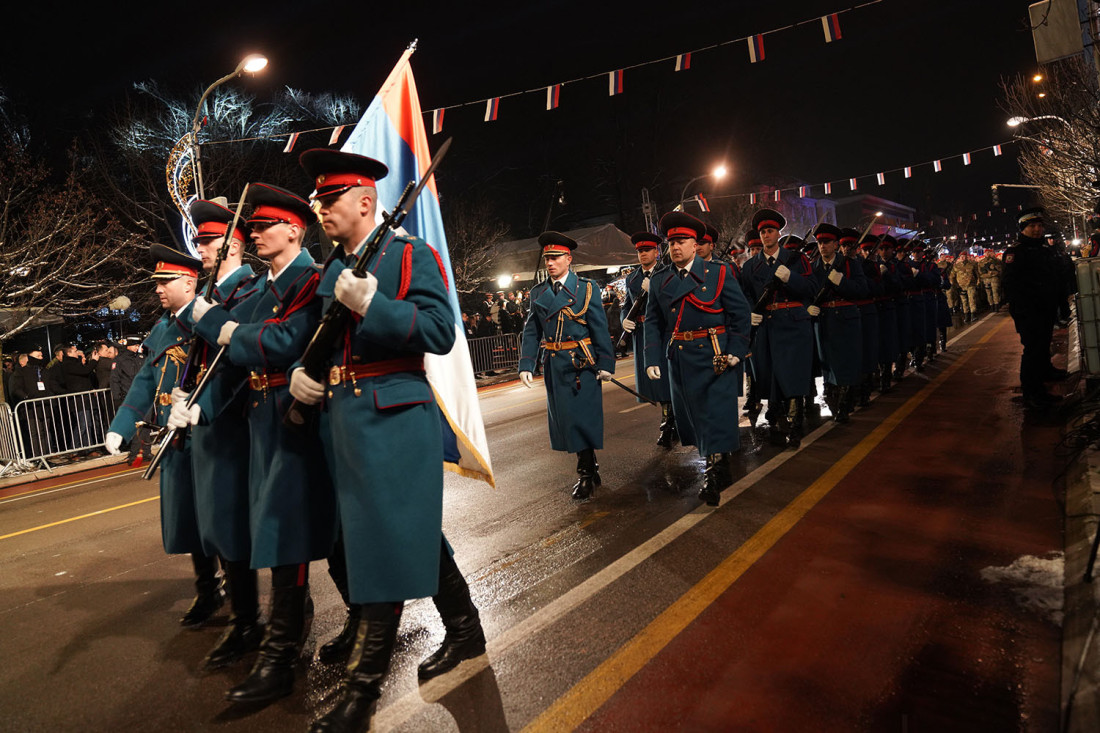
A meeting with Miloš, Lazar, Tvrtko, and Sava in the future
Pavlović concluded that challenges lie ahead this year, but the progress of Republika Srpska is the greatest revenge against all evil.
“This year will bring new challenges, but we are aware that we belong to a people who were not supposed to exist—and that our survival, the lives of our children, and the progress of Republika Srpska as the institutional guarantor of our existence are the greatest revenge against every form of destruction and evil,” Pavlović said.
He noted that the roots of Serb identity are found in the historical journey of the Serb people, as well as in their future encounters with Miloš, Lazar, Tvrtko, Dušan, Sava, and Stephen—and with all those who gave their lives for Republika Srpska, “for the lives of those who were not supposed to exist, but today celebrate life through their existence.”
“January 9 and Saint Archdeacon and First Martyr Stephen, the Day and Patron Saint of Republika Srpska, are the foundation of our identity and the bridge connecting our past and future,” Pavlović concluded in his op-ed for Srna, also published on the CDPI website.
Source: SRNA

